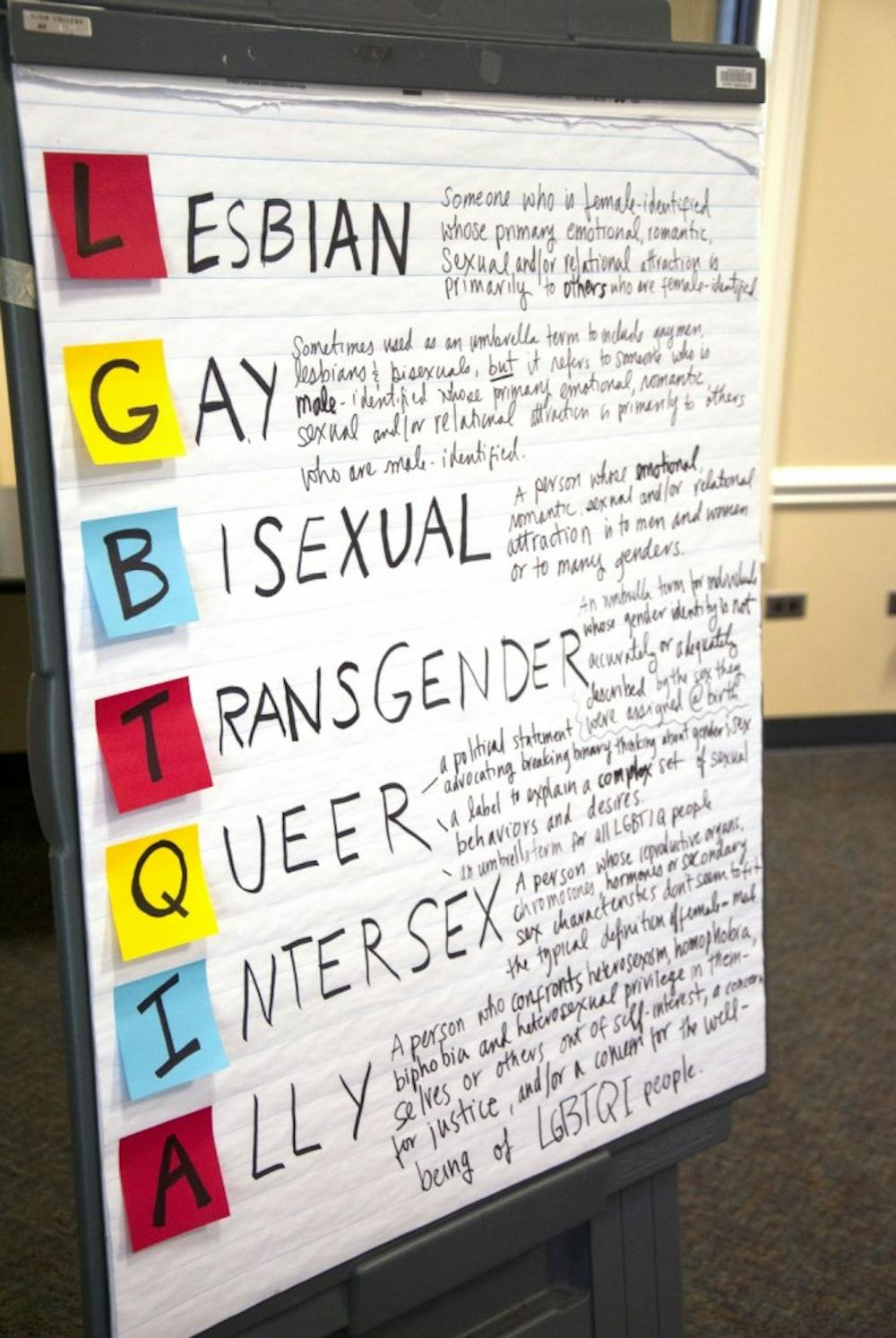The LGBTQ Office open house provided an informal and relaxed opportunity for the Elon University community to gather and socialize Nov. 11. There was food, music and a large crowd — more than Kirstin Ringelberg ever could have hoped for.
"It was so exciting to see, well, people in general, but more specifically so many different kinds of people here," she said. "It was a really exciting turnout, and to show that support for the students is really fantastic."
Ringelberg, the inaugural coordinator of the LGBTQ Office, was in high demand throughout the afternoon. She barely had a spare moment among the many questions and conversations. She said she was beyond thrilled with the outcome, but the success of this one event made her think about what she wants to see next.
Students in SPECTRUM, the university's queer-straight alliance, distributed calendars and pamphlets of information about Transgender Week, which is Nov. 14-18. There was also a handout explaining the different letters of LGBTQ and other letters typically associated with the term.
"Even though this is a social event, we are communicating a message and giving a face-to-face opportunity to talk about what we are doing," said Kevin Newman, a senior and member of SPECTRUM.
Students were given the opportunity to write on Post-it notes and stick them on a board asking
"What do you want from us?" Some notes requested more social opportunities and community-based events, while others asked for tips on ways campus can be more "inclusive." The campus has a large population of straight allies, Ringelberg said, and she wants to ensure they feel welcome at the office's events.
Talk of the developing plans for the new LGBTQ Office was a prominent topic among those in attendance. Although the opening of the office has been postponed from spring semester to next fall, Ringelberg still has a positive attitude and said she wants the center to bridge different communities on campus.
Having a physical office is something many members of the Elon community, especially those present at the open house, have stressed as an important part of serving a broader purpose than what one group, likeSPECTRUM, can offer.
"The importance of having an actual, physical office is that people always know where to find you," Ringelberg said. "A space is an important sign of our role on campus, that this is legitimate and significant."
Some students feel there can be no harm in having an office, but others express legitimate concerns.
When first hearing about the office, sophomore Taylor Aucott, who identifies as gay, initially voiced his support, calling it a "safe haven" for people who simply want to just talk — not just about LGBTQ matters, but about anything.
He said he feels the office could provide a comfortable and welcoming environment without people feeling the need to explain themselves. As a music theater major, he has been involved in a community where there is never a shortage of support, so he understands the importance of a physical space where people feel "free to breathe."
But Aucott also fears the office may inevitably intimidate some people and less sensitive students may make assumptions that everyone who goes to the office "is gay and has problems." He worries that the place may become ridden with social stigmas, which would defeat the ultimate priority of a "safe haven."
Aucott, reflecting back on a specific SPECTRUM meeting he attended, said he doesn't want people to assume an LGBTQ office is a "gay AA," like Alcoholics Anonymous. There is a need for appropriate advertising to steer clear of such a message, he said.
But Newman said he thinks there are no concerns with having a physical office.
"Without a physical office, we don't feel like we're actually a group," he said. "We feel less inclined to communicate."
Sophomore Kevin Moore, a member of SPECTRUM, said he feels that more importance and urgency has historically been placed on other organizations, like sororities and fraternities, so the office development has not been as prioritized by the university as it should have been. He said he sees the office as an opportunity for students to talk to someone, like Ringelberg, more privately if he or she doesn't necessarily want to be a part of an on-campus queer-straight alliance.


